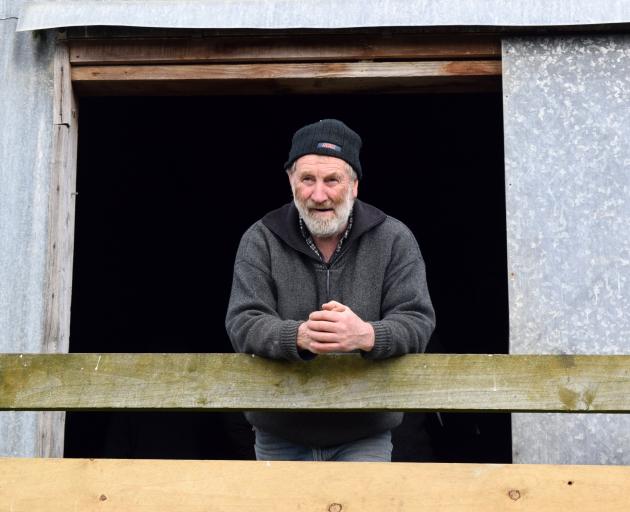Science
Study Tracks Facial Eczema Impact on New Zealand Sheep Farms

A new study by Beef + Lamb New Zealand is examining the impact of facial eczema on sheep farms throughout the country, utilizing fresh sheep manure to gather crucial data. The research, led by animal health principal scientist Cara Brosnahan from Wellington, is now in its third and final season.
During the second season, researchers detected low levels of facial eczema spores on four sheep farms in Otago. The first season revealed similar findings, with spores identified on one sheep farm in Southland. Grazing livestock, apart from horses, can contract this disease by ingesting toxic fungal spores commonly found in pasture, particularly ryegrass.
Farmers are informed when spores are found in their manure samples and are encouraged to continue submitting samples to monitor spore levels. If the numbers rise, they are advised to consult a veterinarian. The spores are environmental fungi that can proliferate under specific conditions, often going unnoticed by livestock until they reach harmful levels.
Dr. Brosnahan emphasized that even if livestock do not show immediate clinical symptoms, hidden signs can include decreased productivity or increased empty rates during pregnancy scanning. Clinical symptoms of the disease have been reported from regions ranging from Northland to the West Coast. Alarmingly, over half of the manure samples provided by farmers in the northern South Island exhibited clinical signs of facial eczema.
The study aims to establish connections between farm elevation, pasture height, and neighboring spore counts in relation to the risk of facial eczema. The final season is critical for confirming these relationships, and participation remains free and straightforward. Farmers collect sheep manure samples every two weeks from October to May, with Beef + Lamb supplying the kits and covering postage costs. In return for their participation, farmers receive results to better understand their risks, a $40 subsidy for fecal egg counts, and the opportunity to be selected for monthly fecal egg counts and larval culture testing.
Farmers play a vital role in mitigating the economic impact of this disease, which costs the agricultural sector more than $330 million annually. Dr. Brosnahan stressed the importance of increased participation, especially from farmers who have not yet detected facial eczema on their properties. “Those results help build our understanding of this devastating disease,” she stated.
Facial eczema causes liver damage in affected livestock, leading to decreased fertility, weight loss, reduced milk production, photosensitivity, sunburn, and, in severe cases, death. “There’s no cure, so proactive management is essential,” Dr. Brosnahan added.
Graham Evans, a sheep farmer from Barr Falls Farm in the Catlins, actively participates in the study. He collects and sends fresh manure samples to researchers, dedicating approximately 30 minutes to the process every two weeks. To date, no spores have been found on his property, but he acknowledges the inevitability of the disease spreading southward. “It doesn’t matter whether you believe in climate change or not. It’s going to happen,” he warned.
Evans hopes that more farmers in southern regions will contribute to the study, highlighting the differing conditions between sheep farming environments from the Catlins to Central Otago. His involvement is driven by a desire to assist future generations of farmers in understanding and managing this significant health risk to livestock.
-

 Top Stories1 month ago
Top Stories1 month agoCommunity Mourns Teens Lost in Mount Maunganui Landslide
-

 Entertainment6 months ago
Entertainment6 months agoTributes Pour In for Lachlan Rofe, Reality Star, Dead at 47
-

 World3 months ago
World3 months agoPrivate Funeral Held for Dean Field and His Three Children
-

 Top Stories3 months ago
Top Stories3 months agoFuneral Planned for Field Siblings After Tragic House Fire
-

 Sports6 months ago
Sports6 months agoNetball New Zealand Stands Down Dame Noeline Taurua for Series
-

 Entertainment1 month ago
Entertainment1 month agoJulian Dennison Ties the Knot with Christian Baledrokadroka in New Zealand
-

 Entertainment5 months ago
Entertainment5 months agoNew ‘Maverick’ Chaser Joins Beat the Chasers Season Finale
-

 Sports6 months ago
Sports6 months agoSilver Ferns Legend Laura Langman Criticizes Team’s Attitude
-

 Sports4 months ago
Sports4 months agoEli Katoa Rushed to Hospital After Sideline Incident During Match
-

 Sports4 months ago
Sports4 months agoAll Blacks Star Damian McKenzie and Partner Announce Baby News
-

 Sports3 months ago
Sports3 months agoNathan Williamson’s Condition Improves Following Race Fall
-

 Politics5 months ago
Politics5 months agoNetball NZ Calls for Respect Amid Dame Taurua’s Standoff





















